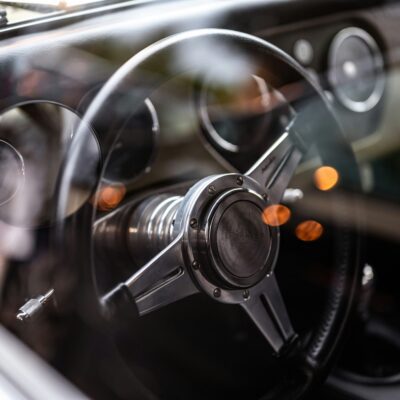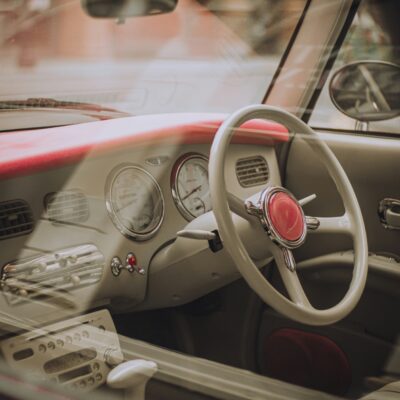Introduction to car maintenance
Welcome to the ultimate guide on how to keep your car running smoothly for years to come! Whether you’re a seasoned driver or a newbie behind the wheel, proper car maintenance is key to ensuring longevity and top-notch performance. Buckle up as we dive into expert tips that will have your vehicle purring like a well-oiled machine in no time. Let’s rev up those engines and get started!
Importance of regular maintenance for longevity and performance
Regular maintenance is like giving your car a health check-up. Just as you visit the doctor for preventive care, your car needs regular attention to stay in top shape. Skipping maintenance can lead to unexpected breakdowns and costly repairs down the road.
By staying on top of routine maintenance tasks, you can extend the lifespan of your vehicle and ensure it performs at its best. From oil changes to tire rotations, each task plays a crucial role in keeping your car running smoothly and efficiently.
Neglecting maintenance not only affects performance but also impacts safety on the road. Properly maintained vehicles are less likely to experience sudden malfunctions that could put you at risk while driving.
Think of regular maintenance as an investment in your car’s longevity and performance. With proper care, you’ll enjoy a smoother ride and avoid potential headaches caused by neglecting simple upkeep tasks.
Essential car maintenance tasks:
When it comes to essential car maintenance tasks, staying on top of these can significantly impact your vehicle’s longevity and performance. One crucial task is regular oil changes. This helps keep your engine running smoothly by lubricating its moving parts and preventing wear and tear.
Tire rotations are also vital to ensure even tread wear, promoting better traction and extending the lifespan of your tires. Regular tune-ups can catch any potential issues early on, saving you from costly repairs down the road.
Don’t forget about checking and replacing fluids like coolant, brake fluid, and transmission fluid. These fluids play a key role in keeping your car operating efficiently.
Whether you choose to DIY these tasks or rely on a professional mechanic, consistency is key in maintaining your car’s health. By staying proactive with maintenance routines, you can enjoy a smoother ride for years to come.
A. Oil changes
Ah, the essential oil change – a simple yet crucial maintenance task for your car’s health. Regularly swapping out old, dirty oil with fresh lubricant is like giving your engine a revitalizing spa treatment. It helps prevent friction and wear, keeping everything running smoothly under the hood.
Oil changes should be done according to your manufacturer’s recommendations or every 5,000 to 7,500 miles as a general guide. Neglecting this can lead to increased engine wear and reduced fuel efficiency over time. Plus, clean oil ensures proper engine lubrication and cooling, which are vital for overall performance.
Whether you’re a DIY enthusiast or prefer leaving it to the pros at a trusted mechanic shop, ensuring timely oil changes will go a long way in maintaining your car’s longevity and performance on the road. So don’t skip this simple yet effective maintenance task – your vehicle will thank you!
B. Tire rotations
Tire rotations are a crucial aspect of car maintenance that often gets overlooked. By regularly rotating your tires, you can ensure even wear and extend their lifespan. This simple task involves moving each tire to a different position on your vehicle to promote balanced tread wear.
Uneven tire wear can lead to poor handling, decreased fuel efficiency, and even safety hazards on the road. To avoid these issues, it’s recommended to rotate your tires every 5,000 to 7,500 miles or as specified in your vehicle’s manual.
By maintaining proper tire rotation schedule, you can maximize the performance and longevity of your tires while improving overall driving experience. Remember that neglecting this routine maintenance could result in costly repairs down the line. So take care of those wheels!
C. Regular tune-ups
Regular tune-ups are crucial for maintaining your car’s performance and longevity. During a tune-up, a professional mechanic will inspect and adjust various components of your vehicle to ensure everything is running smoothly. This includes checking the spark plugs, ignition system, fuel system, and more.
By having regular tune-ups scheduled according to your manufacturer’s recommendations, you can prevent potential issues before they become major problems. This proactive approach can save you time and money in the long run by avoiding costly repairs that could have been prevented with routine maintenance.
Tune-ups also help improve fuel efficiency and overall engine performance. A well-maintained engine operates more efficiently, leading to better gas mileage and reduced emissions. So, don’t overlook the importance of regular tune-ups in keeping your car running at its best!
D. Fluid checks and replacements
Fluid checks and replacements are vital for maintaining your car’s health. Engine oil should be checked regularly to ensure proper lubrication and avoid engine damage. Coolant levels need monitoring to prevent overheating, especially during hot seasons or long drives.
Brake fluid is crucial for your safety on the road, so make sure it’s at the right level and not contaminated. Transmission fluid helps keep gears shifting smoothly – a simple check can save you from costly repairs down the line.
Don’t forget about power steering fluid; low levels can lead to difficulty steering. Windshield washer fluid may seem minor, but clear visibility is key for safe driving in all conditions.
Regularly inspecting these fluids keeps your car running efficiently and extends its lifespan.
How to DIY or choose a professional mechanic for car maintenance
When it comes to car maintenance, deciding whether to DIY or seek a professional mechanic’s help can be a crucial choice. If you’re handy with tools and have the time and patience to learn, tackling basic maintenance tasks like oil changes and tire rotations yourself can save you money. There are plenty of online tutorials and guides available to assist you in the process.
However, for more complex issues or if you prefer leaving it to the experts, choosing a reputable mechanic is key. Look for certified technicians who specialize in your vehicle make and model. Ask for recommendations from friends or read reviews online to find a trustworthy service provider.
Keep in mind that DIY may void your warranty if not done correctly, so weigh your options carefully before deciding on how to approach your car’s maintenance needs.
Additional tips for prolonging your car’s lifespan:
A clean car is a happy car! Regularly washing and waxing your vehicle not only keeps it looking sharp but also protects the paint from damage caused by dirt, debris, and harsh weather conditions. Plus, who doesn’t love that fresh-from-the-carwash feeling?
Your driving habits play a significant role in the longevity of your car. Avoid aggressive acceleration and sudden braking as these actions can put unnecessary strain on your engine, brakes, and other components. Opt for smooth and steady driving to keep everything running smoothly.
When it comes to storing your car, consider factors like shelter from extreme temperatures, keeping it out of direct sunlight whenever possible to prevent interior damage or fading paint. Also, choose safe parking spots to minimize the risk of dings or scratches from other vehicles.
Taking care of these additional aspects beyond regular maintenance can go a long way in extending the lifespan of your beloved ride. After all, a little extra effort now can save you big bucks down the road!
A. Keeping it clean
Maintaining the cleanliness of your car is not just about aesthetics; it’s also essential for its longevity and performance. Regularly washing and waxing your vehicle helps protect the paint from damage caused by dirt, debris, and harsh weather conditions.
Aside from the exterior, don’t forget to clean the interior as well. Vacuuming carpets and seats, wiping down surfaces, and keeping clutter at bay can contribute to a more pleasant driving experience while preventing wear and tear on your car’s interior components.
Cleaning under the hood is equally important. Removing dirt and grime from engine components can help prevent overheating and potential mechanical issues. Don’t overlook areas like air filters, battery terminals, and fluid reservoirs when tidying up under the hood.
By making cleanliness a priority in your car maintenance routine, you are not only enhancing its appearance but also taking proactive steps towards ensuring its long-term health and performance.
B. Driving habits
When it comes to maintaining your car for longevity and optimal performance, your driving habits play a significant role. Aggressive driving behaviors like sudden acceleration, hard braking, and speeding can put unnecessary strain on your vehicle’s engine, brakes, and tires.
To prolong the lifespan of your car, try to drive smoothly by accelerating gradually and braking gently. Avoiding abrupt stops not only saves fuel but also reduces wear and tear on essential components. Additionally, maintaining a consistent speed on the highway can improve fuel efficiency and reduce stress on the engine.
Another aspect of good driving habits is being mindful of road conditions and adjusting your speed accordingly. By avoiding potholes, rough terrain, and excessive idling in traffic jams, you can prevent damage to your suspension system and engine overheating.
Remember that how you drive directly impacts the health of your car – so adopting safe and cautious driving practices will go a long way in ensuring its longevity!
C. Storage and parking considerations
When it comes to prolonging your car’s lifespan, storage and parking considerations play a significant role.
Finding sheltered or covered parking can shield your vehicle from the elements like harsh sunlight, rain, and snow. Exposure to these conditions can lead to paint damage, rust formation, and deterioration of rubber components.
If you live in an area with extreme temperatures or inclement weather, investing in a car cover can provide an additional layer of protection when parked outside. This simple accessory can help prevent fading of the exterior finish and protect the interior from heat damage.
Avoiding long-term parking on grass or dirt surfaces is essential to prevent moisture buildup underneath the vehicle that could lead to corrosion issues over time. Opt for paved or concrete parking spots whenever possible for added longevity.
Considering these storage and parking tips will go a long way in maintaining your car’s appearance and structural integrity for years to come.
Budget
Maintaining your car for longevity and performance is crucial for ensuring its reliability and safety on the road. By following these expert tips for essential car maintenance tasks such as oil changes, tire rotations, regular tune-ups, and fluid checks and replacements, you can significantly prolong your vehicle’s lifespan.
Whether you choose to DIY or rely on a professional mechanic, staying proactive with routine maintenance will save you from costly repairs in the long run. Additionally, keeping your car clean, being mindful of your driving habits, and considering storage and parking conditions are simple yet effective ways to maximize your vehicle’s longevity.
Setting aside a budget specifically for car maintenance is key to ensuring that you can address any issues promptly without breaking the bank. Remember that investing in regular upkeep now will pay off in the form of enhanced performance, durability, and overall satisfaction with your beloved vehicle. So stay diligent with maintenance tasks and enjoy many more miles of smooth rides ahead!





